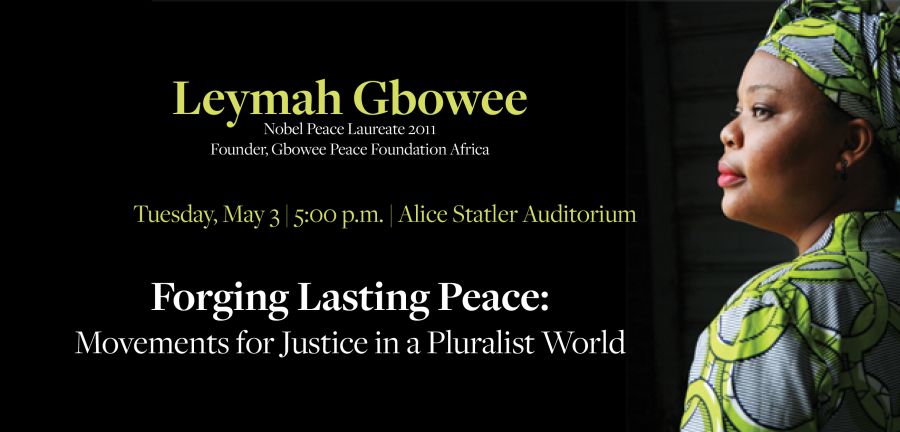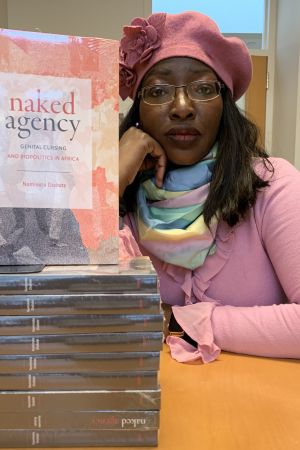Reppy Institute for Peace and Conflict Studies
PACS Faculty Member Develops a Political Framework to Understand Police Violence
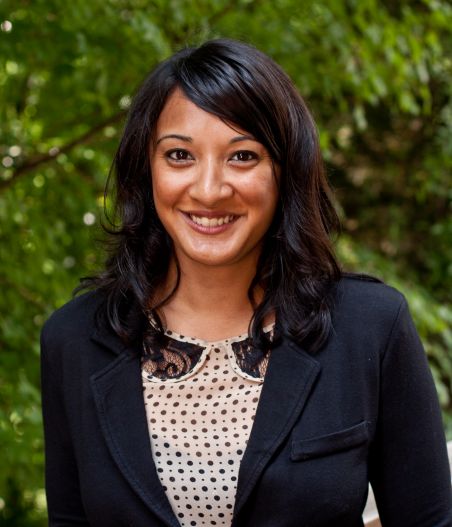
Sabrina Karim, PACS
Researchers will use cross-national, time-series data to identify domestic and international political conditions in which various forms of excessive and/or illegitimate violence are more likely to occur.
Additional Information
Bartels Explainer

How did Leymah Gbowee's protests lead to lasting peace?
Naminata Diabate outlines the movement's tactics and explains how womens' protests helped end the Liberian civil war.
This year's Bartels lecturer, Nobel laureate Leymah Gbowee, led an interfaith women's peace movement that played a pivotal role in bringing warlords to the peace table and ultimately ending Liberia's bloody 14-year civil war in 2003. The movement's historic achievement earned Gbowee the Nobel Peace Prize in 2011. She continues her work as a global leader and activist for peace and women's rights.
"We need to specify that both a sex strike and the threat to strip naked are not nonviolent forms of protest."
On this page: Naminata Diabate describes the tactics used by Women of Liberia Mass Action for Peace, the interfaith women's peace movement Gbowee led, and explains how the protests helped end the civil war. Diabate is an associate professor of comparative literature in the College of Arts and Sciences and member of the Institute for African Development's faculty steering committee.
Coming May 3: Reserve Your Free Ticket Today!
A Conversation with Naminata Diabate
What types of protests did Gbowee and the peace movement she led carry out?
Leymah Gbowee and the interfaith women wrote countless letters to major stakeholders, organized vigils, fasting, meetings, deliberations, sit-ins, dancing and chanting, a sex strike—and finally threatened to strip naked. Most importantly, they deployed determination to bring peace to their country.
Were these nonviolent protests?
We need to specify that both a sex strike and the threat to strip naked are not nonviolent forms of protest. In fact, they constitute the most violent types that women in specific communities (such as the ones Leymah Gbowee and her comrades worked in) can deploy against their menfolk, and by extension, their societies.
A sex strike—which we see organized around the world and even in the United States—is not peaceful because it reverses the gender expectation of the female body as available for procreation, male sexuality, and pleasure, and relatedly, it opposes procreation, which can endanger the life of the community.
As for defiant self-exposure—another name I use for naked protest—it constitutes the last resort in specific circumstances that allegedly cause the targeted males a myriad of misfortunes, including shame, impotence, infertility, incurable diseases, and literal or social death.
What were the protesters trying to accomplish?
With multiple strategies, both violent and nonviolent, the women tried to attract the attention of the international community and force the warring parties and strongmen such as Charles Taylor to understand the suffering of the Liberian people—and to bank on the women’s unfailing determination to bring about peace.
How was this group of women able to succeed against strongmen like Taylor?
This grassroots group of women was able to succeed against the warring factions and strongmen thanks to their unwavering resolve to matter as peace brokers in their country’s journey through war and toward peace. Additionally, their resourcefulness in deploying multiple conflict management tactics—both modern and indigenous—to make a difference remains remarkable.
Why do you think their protests were effective?
The women’s protest tactics were effective because they refused to be muzzled. Their journey was strewn with violent counterattacks, including verbal abuse, humiliation, dismissal, physical brutality, and even death threats. Although they were at times weakened, these exceptional women always came back with more tactics to achieve visibility. The stakeholders, including Charles Taylor, could not but work with these women who refused to go away.
Don't miss the Bartels World Affairs Lecture with Leymah Gbowee on May 3: Reserve your free ticket today!
Additional Information
Two Indian Half-Sisters are the Talk of 'Bridgerton' -- and of Modern-day India, too

Durba Ghosh, PACS and SAP
“While it’s impossible to say how many, there would have been South Asian aristocrats in these circuits as well. There are cases of [Indian] women who have traveled to Britain with their partners and who are a part of society and who have raised their children,” says Durba Ghosh, professor of history.
Additional Information
To Support Ukraine, the West Must Unleash Power of IMF and World Bank

Sarah Kreps, PACS
Richard Clark, incoming assistant professor of government, Sarah Kreps, professor of government and adjunct professor of law, and Don Casler, incoming assistant professor of political science at the University of Illinois at Urbana-Champaign, co-author this opinion piece about how the West should support Ukraine.
Additional Information
May 3: Bartels World Affairs Lecture
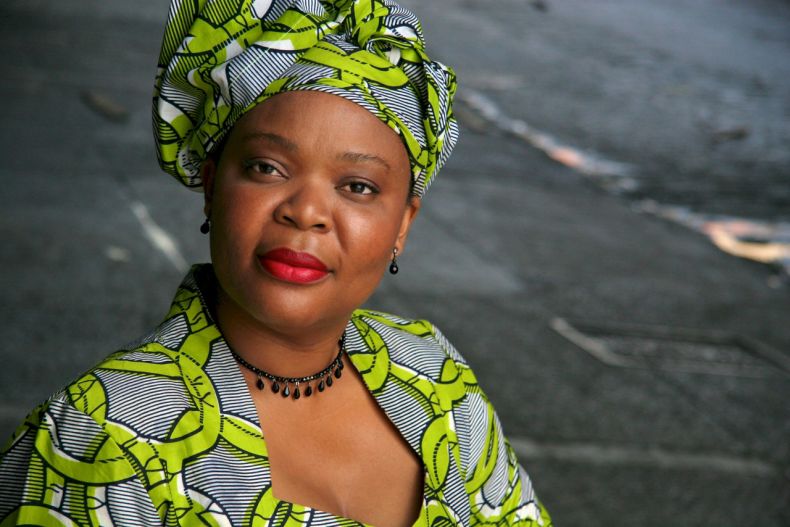
Nobel Laureate Leymah Gbowee: Forging Lasting Peace
Drawing on her experiences of mobilizing, demanding, and brokering peace, 2011 Nobel Peace Prize winner Leymah Gbowee shares how action and activism can shape a just world. Reserve your free ticket today!
Additional Information
How the UN Trusteeship Council might have shaped a substantive decolonization—and why it didn’t
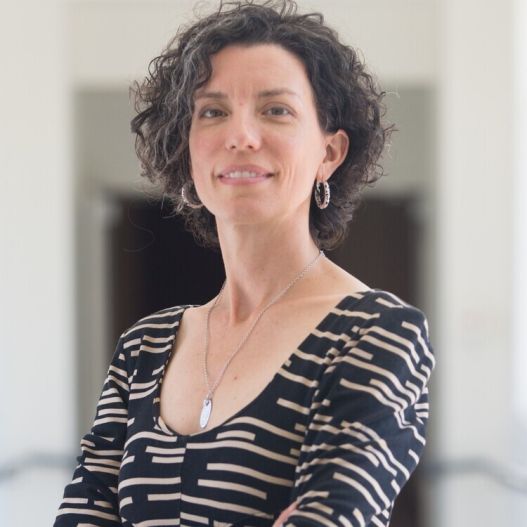
April 28, 2022
11:25 am
Uris Hall, G08
This is a hybrid event. Registration information is below.
This talk sheds light on what various actors engaged with the United Nations trusteeship system wanted decolonization to mean, what they thought, or hoped, it should mean, and their contests of power over normalizing its meaning. The speaker will explain the importance of the UN trusteeship system in establishing decolonizing norms, particularly the meaning of universal rights within those norms. In opting not to address land claims and abuse of power complaints that petitioners brought to its attention, the Trusteeship Council created a precedent for excluding substantive rights from decolonization’s meaning in international law. This talk will elucidate what decolonization could mean within the trusteeship system, by examining the making of Italian Somaliland’s trusteeship agreement within the Trusteeship Council.
About the speakers
Meredith Terretta, is Professor of History at the University of Ottawa. She examines transregional legal and rights activism, both past and contemporary. Professor Terretta is now co-editing, with Dr. Samuel Moyn, The Cambridge World History of Rights, Volume 5: The Twentieth and Twenty-First Centuries. Her work appearing this academic year includes a special issue on African Refuge for the Canadian Journal of African Studies, co-edited with Dr. Philip Janzen, as well as single-authored articles on rights, international law, and decolonization in The Law and History Review; the Comparative Studies of South Asia, Africa and the Middle East; and the Humanity Journal: An International Journal of Human Rights, Humanitarianism, and Development.
This seminar is part of the spring seminar series with the Reppy Institute for Peace and Conflict Studies (PACS).
Register here
In accordance with university event guidance, all campus visitors who are 12 years old or older must also present a photo ID, as well as proof of vaccination for COVID-19 or results of a recent negative COVID-19 test. If you are not currently participating in the Cornell campus vaccination/testing program, please bring proof of vaccination or the results of a recent negative test.
Additional Information
Program
Einaudi Center for International Studies
Reppy Institute for Peace and Conflict Studies
Institute for African Development
Revisiting The Air War in Indochina: American Strategic Bombing From Vietnam to the Present

April 21, 2022
11:25 am
Uris Hall, G08
This is a hybrid event. Registration information is below.
This academic year marks the 50th anniversary of the publication of the first major interdisciplinary research project undertaken by the then newly established Peace Studies Program, now the Judith Reppy Institute for Peace and Conflict Studies -- The Air War in Indochina.
The report, subsequently published by Beacon Press, was based entirely on open-source materials and interviews, and presented an assessment of the war and especially its toll on civilians that remains unmatched to this day.
About the speakers
This seminar features Cornell Professor Emeritus Norman Uphoff, one of the project’s original principal investigators, discussing the history of the study; and Oxford Professor Neta Crawford, co-founder of the Costs of War Project, explaining how she and her colleagues have used similar methods to study the impact of contemporary warfare, including strategic bombing. Professor Matthew Evangelista will introduce and chair the session.
Register here
This seminar is part of the spring seminar series with the Reppy Institute for Peace and Conflict Studies (PACS).
In accordance with university event guidance, all campus visitors who are 12 years old or older must also present a photo ID, as well as proof of vaccination for COVID-19 or results of a recent negative COVID-19 test. If you are not currently participating in the Cornell campus vaccination/testing program, please bring proof of vaccination or the results of a recent negative test.
Additional Information
Program
Einaudi Center for International Studies
Reppy Institute for Peace and Conflict Studies
Southeast Asia Program
Emerging Threats to US National Security: From Ukraine to the South China Sea

April 11, 2022
4:30 pm
Just a little more than six months ago, the United States marked the twentieth anniversary of the terrorist attacks of September 11th, and the end of America’s longest war as the last U.S. troops withdrew from Afghanistan. To mark the occasion, the Institute of Politics and Global Affairs organized a half-day conference of practitioners and academic thought leaders to reflect on the past, present, and future of US grand strategy and the complicated inter-relationships between domestic and foreign policy.
In just six months, existing challenges, such as China’s projection of power in the South China Sea, have intensified and altogether new challenges have emerged, most dramatically the Russian invasion of Ukraine. The NATO alliance, once derided as a Cold War Relic, is once again central, and defense spending is once again increasingly swiftly in most western democracies. This panel discussion will engage these and other developments since September 2021 and examine what they portend for the future of US foreign policy.
Panelists
Annie Pforzheimer is a Senior Non-Resident Associate at the Center for Strategic and International Studies, an Adjunct Professor at the City University of New York, and a public commentator on foreign policy. Her previous thirty-year diplomatic career included positions such as Deputy Chief of Mission in Kabul; director of the U.S. security assistance program in Mexico; lead human rights officer in Turkey and South Africa; and Director for Central America migration issues at the National Security Council. Ms. Pforzheimer is a graduate of Harvard University and the National Defense University, and a member of the Council on Foreign Relations.
James Rogers is DIAS Assistant Professor in War Studies, within the Centre for War Studies, at Southern Denmark University, and Associate Fellow within LSE IDEAS at the London School of Economics. He is currently Special Advisor to the UK Parliament's All-Party Parliamentary Group on Drones and a UK MoD Defence Opinion Leader. His research focuses on drone warfare, contemporary security policy, and the history of warfare, and it has been featured in the Washington Post, Economist, CNN, and, the Guardian, among other outlets.
Daniel Stoian is a Fellow with the Negotiation Task Force at the Davis Center for Russian and Eurasian Studies at Harvard University and a Visiting Scholar at Cornell's Reppy Institute for Peace and Conflict Studies. He most recently served as Deputy Assistant Secretary in the Legislative Affairs Bureau at the U.S. Department of State. Previously he served as the Deputy Executive Director in the South Central Asia Bureau, overseeing the operations of 27 SCA missions and 17 domestic offices across NEA and SCA. He received his masters of public administration at Harvard University, and completed his undergraduate work in computer science engineering and international relations at the University of California at Davis.
Moderators
Sarah Kreps is the John L. Wetherill Professor of Government, Adjunct Professor of Law, and Director of the Tech Policy Lab at Cornell University. She is also a Non-Resident Senior Fellow at the Brookings Institution. Dr. Kreps has held fellowships at the Council on Foreign Relations (where she is a life member), Harvard’s Kennedy School of Government, and the University of Virginia’s Miller Center for Public Affairs. She has a BA from Harvard University, MSc from Oxford, and PhD from Georgetown. Between 1999-2003, she served on active duty in the United States Air Force.
Douglas L. Kriner is Clinton Rossiter Professor in American Institutions in the Department of Government and the faculty director of the Institute of Politics and Global Affairs at Cornell University. He is the author of five books, including (with Dino Christenson) The Myth of the Imperial Presidency: How Public Opinion Checks the Unilateral Executive; After the Rubicon: Congress, Presidents, and the Politics of Waging War; and (with Francis Shen) The Casualty Gap: The Causes and Consequences of American Wartime Inequalities.
Additional Information
Program
Reppy Institute for Peace and Conflict Studies
Einaudi Center for International Studies
"Bridgerton" Hasn’t Solved Its Diversity Problem

Durba Ghosh, SAP/PACS
“It was more common for men to return to England and settle down, leaving behind their children and the Indian women who’d given birth to them,” says Durba Ghosh, professor of history.
Additional Information
Nobel Peace Laureate Leymah Gbowee

May 3: Bartels Lecture and Reception
Join us on May 3 at 5:00 for Leymah Gbowee, "Forging Lasting Peace: Movements for Justice in a Pluralist World." Reserve your free ticket today!

